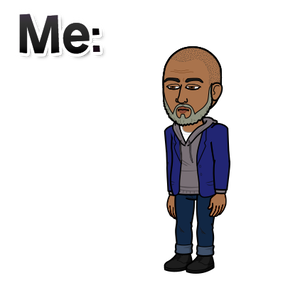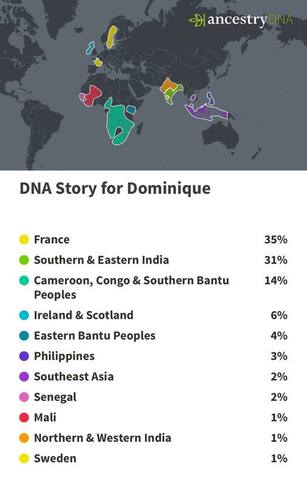|
I am brown not black. I am Mauritian. I am British. I am a teacher and a coach. I am confident and brave. I am intelligent and curious. I get happy and sad. I get nervous and worried. I get anxious yet I am proud. I am me.
The racist names that people called me were hurtful. When people called me these names, they intended to be hurtful. They wanted a reaction. They wanted to be racist. That’s why they used these names. For many years I have thought to understand my feelings about these scenarios I found myself in. I now realized that I wanted to disassociate and distance myself from the names they were calling me. I didn’t want to be those things they were calling me. I didn’t want to be associated with the regions of the world that were linked to those names. I didn’t come from there, so why should they be calling me these names. This is what I thought. This was part of my defence system. For many years I kept this stance. I was Mauritian. I was British. I was brown. I realised that people in this country had racist thoughts and ideas. I suppose I thought so long as I do not fit into the categories that they use when calling people those hurtful and derogatory names, I won’t be as hurt as people from the Indian sub-continent or the continent of Africa. I now believe I was wrong to think that way. During my teenage years I started to explore my identity. I knew my family’s heritage was quite varied. We were Mauritian French Creole. This usually meant some sort of mix with the ruling French hierarchy and those who were brought over from a variety of African countries as slaves. In the year 2000, I explored our family routes using an ancestry website. I tried to connect with others who may have some ideas or connections to my family. I wanted to find out ‘where I came from’. I found some information. It mainly led to what I had been told by my uncles, from their own research. My ancestry was a mixture of French, Italian and a mystery link to the colour in my family. Where did this colour come from? It seemed that is came from an eastern African country. I was never sure. I forgot about my research. The internet moved on and evolved. I continued with my life. I met my wife in 1999. We married in 2001. We had our first child in 2003 and our second in 2006. She is of Polish descent. Her father is Jewish. Our children have an interesting background. My daughter was born in China. When she was young, she told us she was Chinese. My son was born in England, when he was young, he said he was English. Who are they and where are they from? Do they need to identify with a particular country or colour? Why is it that we need to have a specific identity? In my previous school, I opened up this discussion when our librarian had a session for teachers to be ‘books’. It allowed teachers to be the story, about them, and have students ask them questions about the topic they were talking about. I decided to have my topic called ‘Where am I from?’ I told a brief story with some information. The information I provided was supposed to be ambiguous. I hoped that the brief explanation of my background would lead to questions. I had many questions during each session. The students wanted an answer. They wanted an identity for me. They wanted to know where I was from. I never had a clear answer for them. This was the point. Earlier this year, my wife and I decided to get our DNA tested by Ancestry.co.uk. I was sceptical. I wasn’t sure if the results would really tell where I came from or they would use my name and face to make judgements. Maybe they did.
I need to understand my ancestry. I need to get to grips with the make-up of my family background. I feel finding these answers may help with the struggles I have had. Some of the questions I may have not wanted an answer to. Would I then have to accept some of the references and links to the names I was called when I was younger? Would the strength of the name calling feel deeper? I am brown not black. I am Mauritian. I am British. I am a teacher and a coach. I am confident and brave. I am intelligent and curious. I get happy and sad. I get nervous and worried. I get anxious yet I am proud. I am me.
5 Comments
Anne-Marie Ohene-Kena
10/8/2020 06:56:16 am
Thank you very much for writing this article. To be honest I found myself feeling very emotional as I was reading it. Although I know what my immediate heritage and origins are (black Ghanaian father and white English mother), I can relate to the uncertainty about where you fit in. I am never Ghanaian enough as we left when I was 10 and living in England, obviously not white. As an international educator I suppose that the most painful experience of racism I have had was when my school leadership agreed to a request from a parent to have their child moved into another class because they wanted a ‘British’ teacher (read white if you haven’t already!). The father saw my photo on the website and complained. I fully expected the school to reject his demand according to their international values. I was shocked and hurt when they didn’t. My children have lived in several countries. English is their first language but they are getting to grips with a new culture here in the U.K. They are also learning more about people’s attitudes to race.
Reply
Dominique Dalais
10/8/2020 09:19:40 am
Thanks Anne-Marie. It was difficult writing this. I could have written a whole lot more. At one point I maybe will.
Reply
Abena
15/8/2020 11:01:26 am
Hey Anne Marie,
Reply
Nathalie
15/8/2020 02:07:34 am
Thanks for sharing that. I loved reading it as you show your always morphing identity. That shows your connected in learning about your roots and history. Then you bring in your children and the complexicity of their identities.
Reply
Dominique Dalais
15/8/2020 03:02:49 pm
Hi Nathalie, identities do evolve as we learn and go through our lives. When we have children it can become more complex. When they start to delve into their own identity we can learn even more about what they understand and want to express about themselves.
Reply
Leave a Reply. |
AuthorI am hoping that there will be an opportunity here for us to share our letters, petitions, discussion with organisations as we contact them and move forward with creating stronger outcomes for International Teachers of Colour. ArchivesCategories |


 RSS Feed
RSS Feed
